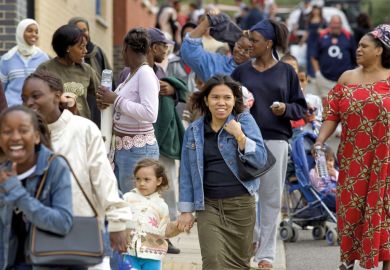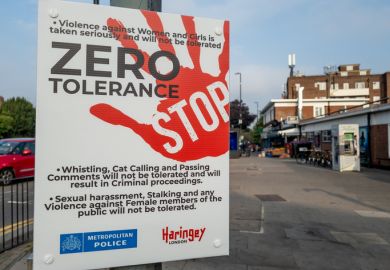Female ethnic minority academics sometimes do not identify as feminists because they feel it is a “white” concept, according to research.
In her study “Gender, ethnicity and feminism: an intersectional analysis of the lived experiences [of] feminist academic women in UK higher education”, Kate Sang, associate professor in management at Heriot-Watt University, found that “ethnic minority women academics feel marginalised as women in the academy” and “further marginalised as black academics within academic feminism”.
She told Times Higher Education that some female ethnic minority academics felt that they “couldn’t be feminist and black” because the “two things are contradictory”.
“Ethnic minority women spoke of feeling ‘tagged on’ to feminist scholarship,” her paper, published in the Journal of Gender Studies, states. “It was felt that there were incompatibilities between feminism and certain ethnic (non-white) identities, with the experiences and scholarship of ethnic minority feminist women remaining on the margins of wider feminist discourse.”
It adds that some ethnic minority academics felt that they were “forced to choose between a feminist identity or that of their ethnic background” to progress.
“Ethnic minority feminist academics feel they need to pick a particular identity in a particular context,” Dr Sang explained to THE. “For the women in our study, feminism is seen as inherently a white project.
“Some women would use ‘womanism’ or ‘black feminism’, but I also think there was a complexity in terms of which identity is most salient in particular contexts.”
These women, she added, “may not label themselves as feminists” when “they go back to their families or do research in those communities” because academic feminism has not “taken on intersectionality” – the interaction of social identities including gender, ethnicity, sexuality and class.
“There’s not just one feminism, there are multiple feminisms; but [academic] feminism is still the white, middle-class, able-bodied, heterosexual feminism of ‘how can we get childcare’ and those kinds of concerns,” she said.
Her paper used data from focus groups organised at a networking event for UK-based feminist academics. Participants were a combination of scholars involved with feminist research and others who were not. In the wider academy, it found that feminist scholars raised concerns of “hampered career progression as a consequence of being female and openly feminist”.
Despite the issues that feminist ethnic minority academics faced, Dr Sang said that some “used that double marginalisation” to their advantage.
“There was one woman who used those two conflicting identities to be able to develop a new syllabus at her university on feminism,” she said. “Some of the women felt they were able to use being a feminist and an ethnic minority – those two marginalised identities – to challenge government practices.”
Register to continue
Why register?
- Registration is free and only takes a moment
- Once registered, you can read 3 articles a month
- Sign up for our newsletter
Subscribe
Or subscribe for unlimited access to:
- Unlimited access to news, views, insights & reviews
- Digital editions
- Digital access to THE’s university and college rankings analysis
Already registered or a current subscriber?







